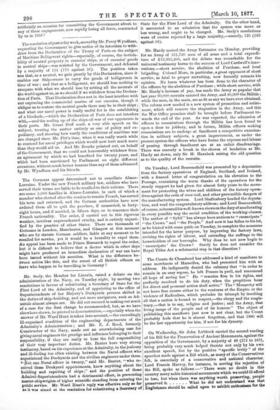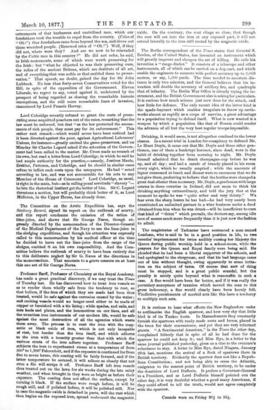On Wednesday, Sir John Lubbock carried the second reading of
his Bill for the Preservation of Ancient Monuments, against the opposition of the Government, by a majority of 48 (211 to 163), being probably very much helped thereto not only by his own excellent speech, but by the positive "specific levity" of the speeches made against a Bill which, as many of the Conservatives felt, is essentially of a conservative and national character. Lord Francis Harvey, for instance, in moving the rejection of the Bill, spoke as follows :—" There were no doubt in this country many noble historical monuments which we could ill afford to lose, but when there was anything worth preserving, people
preserved it. What he did not understand WO that Englishmen should be called upon to exhibit enthusiasm for the viintriments of that barbarous and uncivilised race, which our forefathers took the trouble to expel from the country. (Cries of "Oh!") Our forefathers came from beyond the sea, and drove out -these wretched people. (Renewed cries of "Oh !") Well, if they did not, where were they? And are we now to be reinvaded by the Celtic race in this country ?" He did not refer, he said, to Irish monuments, some of which were worth preserving for the Irish ; but "what he objected to was their preserving ours, the relics of the ancient Britons, which are destitute of all art, and of everything that was noble or that entitled them to preser- vation." That speech, no doubt, gained the day for Sir John Lubbock. No less than forty-seven Conservatives voted for the Bill, in spite of the opposition of the Government. Eleven Liberals, we regret to say, voted against it, undeterred by the prospect of being regarded as sharing the remarkable historic conceptions, and the still more remarkable fears of invasion, announced by Lord Francis Hervey.



































 Previous page
Previous page